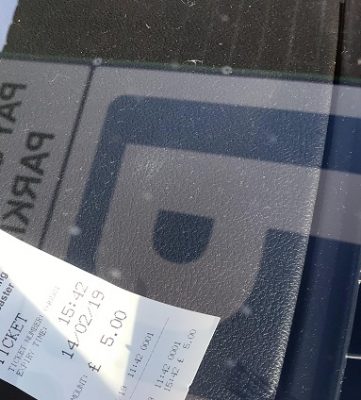Bristow & Sutor, one of the UK’s leading players specialising in debt recovery, are meeting with more people now than before the coronavirus pandemic began. Despite not currently entering premises, contact rates have increased by 15% and Enforcement Agent (EA) payment results have shown an increase of 24%. The company believes this proves the majority of debtors are willing to engage and those who can afford to pay remain happy to do so.
Bristow & Sutor has over 42 years’ experience in the collection of local council tax, non-domestic rates and unpaid Penalty Charge Notices. Importantly, the company has received zero complaints related to doorstep enforcement or conduct since the resumption of EA visits at the end of August. Bristow & Sutor employees are directly employed and are not paid based on the performance of one visit, their goal remains to help find the best solution and not focus purely on achieving immediate revenue.
Much of the success seen since resuming activity last month can be attributed to more people working from home, making now a better time than ever for local authorities to act and resolve cases of unpaid debt. Less traffic on the roads has also resulted in faster journey times for EAs, with call rates increasing by 8%.
In the first 7 days of resuming enforcement activity, Bristow & Sutor EAs knocked on almost 10,500 doors. The company has indicated reactions to their visits and case outcomes have been reflective of business as usual, which is a pleasant surprise considering the significant COVID-19 related changes to processes and procedures. Every Bristow & Sutor EA now possesses equipment such as hand sanitisers, antibacterial wipes, disinfectant sprays and gloves as standard. They are not permitted to enter properties currently, so any resolution found is done so in a socially distanced manner from the doorstep.
Latest Government and CIVEA advice and protocol is being followed by Bristow & Sutor employees at all times. COVID-19 guidance for staff on how to deal with customers, including revised guidance on vulnerability, is allowing EAs to deal with cases appropriately, safely and efficiently. This includes immediately withdrawing from the doorsteps of vulnerable debtors and passing these cases onto welfare teams so that people can get the correct support that they need. So far, Bristow & Sutor has recorded less than 100 instances of COVID-19 affected debtors in line with CIVEA guidance since resuming enforcement activity.
The reality remains however, that debts are less collectible the older they become. ‘Gone Away’ results have increased by 48% recently due to cases aging during the five-month period where no visits were permitted. It is imperative, therefore, that local authorities seize the moment and engage with debtors now that they are available and open to communication.
Andy Rose, CEO at Bristow & Sutor, says, “Suspending enforcement action during the coronavirus lockdown has left local authorities requiring fast, efficient and accountable recovery action as soon as possible. Our strong performance for councils following the return of visits shows that the public are comfortable with the measures in place and remain keen to resolve their debts. Now is the perfect time for all local authorities to act and recoup significant amounts of money they are owed, at a time when they need it most.
“We must acknowledge that more people could face vulnerable circumstances, but our ability to handle these scenarios and support those individuals remains the same. We believe that our approach maintains the same sensitivity and pragmatism that recovery cases should always be handled with.”
Before resuming visits, Bristow & Sutor supplied reconnection letters to debtors, giving them the opportunity to set up flexible payment arrangements and discuss changing circumstances. The company managed to secure over £8million pounds of revenue for local authority clients throughout lockdown, prior to enforcement resuming.
Bristow & Sutor prides itself on delivering an ethical, compliant and high-quality service to the public and private sectors. Agents regularly assist debtors with completing questionnaires, setting up payment arrangements and directing them towards support and advice where appropriate. They are trained to the highest standard and use modern technology and data to achieve market-leading performance, whilst protecting the most vulnerable in society and the reputations of clients.






Recent Comments